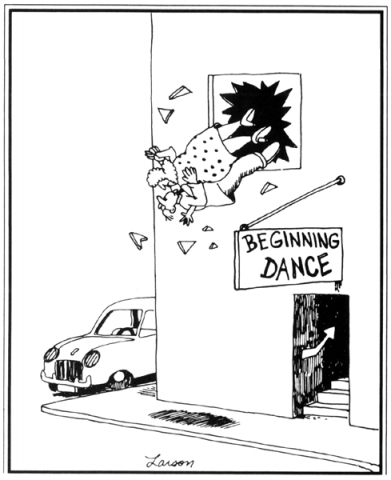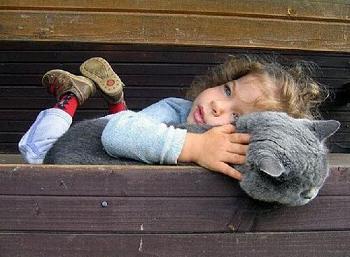
Updated Jun 25, 2011
Part 1 Topics and Questions
For The IELTS Speaking Tests, January - April, 2011
This is Page 2 of 3
1.
Your
Work
or Your Studies
See
also ALL_PART_1_QUESTIONS 1b. Your Work
General Description of Your Job
Finding a Job
Feelings about the Job
Interesting
See also ALL_PART_1_QUESTIONS 1a. Your Studies
Note: For high school students or recent high school graduates who have not yet started university, the word "school" or the words, "high school" or "secondary school" will be used instead of "university". If you are no longer a student now and have not yet started to work, the questions will be about the last time you were a student, either high school or university, and the questions will be asked in the past tense.
General Description of Your Studies
Liking Your Subject
Easy/Difficult
Interesting
Future Work
What are your future work plans? (after you graduate)
(Similar to above) What do you plan (or, do you want) to do after you finish your course?
(Similar to above) What work would you like to do after you finish your studies?
Do you think what you are studying now will be very useful (or, relevant or, important) for this type of work?
Do you think you will be able to
easily find work in the future after studying _______ (your subject)?
How will you (or, how do you plan to) get the job you want?
Do you think it will be easy to find that kind of work?
(Similar to above) Do you think it will be easy to find that kind of work (without help)?
(Similar to above) Do you think it will be easy to find work (or, find a job) after you graduate?
(Similar to above) Is it easy to find a job with this major?
Being a Student
Do you like school/university life?
What do you like most about your
studies?
(Possibly the question above is) Do
you enjoy studying that (your subject)? --> What's the most enjoyable thing
about it?
(In a classroom,) who do you think is more
important, the students or the teacher?
(Similar to above)
(Similar to above)
Who gives you more help, the teachers
or other students?
What do you get from your teachers?
First Day
How was your first day of university?
See
also ALL_PART_1_QUESTIONS 3. Your Hometown
Notes:
– Your 'hometown' is the place where you grew up, not necessarily the place where you were born or your ancestral family location.
– Don’t say your hometown is “Henan” or some other province. That is your home province, not your home town.
– Sometimes the questions below are used not for your hometown but for the place where you are living now, even if the word, "hometown" is used in a question below.
– Several questions here are similar because there is more than one set of questions for the topic, "Your Hometown".
The Place
Where
do you come from?
(Similar to above) Where is your
hometown?
Where
do you live at the moment?
(Similar to above) How long have you
lived there?
(If you are living in a different
place to where you come from) Why did you move there/here?
Is that a big city or a small place
(or, a small town)?
Which do you prefer, to live in a big
city or a small place?
(Similar to above) Do you like living in a big city/small
place (whichever you said in your previous answer)?
N
What are the advantages (or, benefits)
of living in a
Is it an interesting place to live?
Do you think living in a big city is
more interesting than living in a small place?
Would you say your hometown is more
suitable for young people to live in, or old people?
Famous
Is your
hometown famous for anything?
(If you answer no) How could it become famous?
The History of Your Hometown
Do you
know much about the history of your hometown?
Did you
learn (or, have you learned) much about the history of your hometown in
school?
Transport
What form of transport do you prefer to use in your hometown?
House or Flat
Do you
live in a house or a flat?
Free Time Activities in Your Hometown
What do people in your hometown do in their free time?
(Similar to above) What do you do in your hometown in your leisure time?
What
place(s) in your hometown do you go to in your leisure time?
(Similar
to above) What places does your hometown have where people can go to enjoy
themselves?
Are there
any places that are suitable for foreigners to visit in your hometown?
(Perhaps
the question above is this)
(Similar
to above) What can a visitor to your hometown do there?
Your Feelings about the Place
Do you like living here/there?
Would you say it's a good place to grow up (in)?
What do
you like (most or, best) about (living in) your hometown (or, about living where you are
living now)?
3. Your
Home (Your Accommodation)
No questions yet. The topic has not been reported yet.
Have you ever
traveled by (= flown in a) plane? (If
yes, when, where did you go?)
(Similar to
above) Do you often travel by air? (To where?)
When was the
last time you traveled by air?
Did you like it
(like flying)?
(Similar to
above) Do you think it's a good way to travel?
How does flying compare to other forms of transport?
Do people
travel by air more today than in the past?
Do you think there will be more people traveling by air in the future?
(Similar to
above) Do you think air travel will become more popular in the future?
Do you think
you will fly (or, be flying) less, or more, in the future?
Do you have any
plans to travel by air in the future? (If yes: Where will you be going?)
If you travel by plane again, where do you think you will go (or, you will be going)?
Do you like to
go to museums?
Did you go to
any museums when you were a child?
(Possible
question)
When was the
last time you visited a museum?
Do you think museums are important? C
(Similar to
above) What do you think are the benefits of visiting museums?
Do you think
it's good (or, suitable) for museums to sell things to visitors?
(Similar to
above)
Do you think
people should have to pay to enter museums?
See also ALL_PART_1_QUESTIONS 55. News
How do you
usually get (your) news?
Do you read newspapers?
What sections
of the newspaper do you usually read?
Do you prefer to read newspapers or watch TV to get your news? C
What news topics are you most interested in watching/reading about?
(Similar to
above) What kinds of news are you most interested in?
(Similar to above) What types of news stories are you most interested in?
Do you ever get your news from the internet?
How important do you think the news is?
(Similar to above) Do you think it's important to keep up with the news?
Do you like
dancing?
When was the
last time you danced?
(Similar to
above)
(Similar to
above)
Where can we
see people dancing?
(Similar to above) What are some of the various places where we can see people dancing?
Do you like to
watch dance performances?
(Similar to above) How do you feel when you watch dance performances on TV?
Why do some
people learn dancing?

Why do you think some (or, many) people like dancing?
Is dancing
important to young people?
Do you like reading (books)?
(Why?/Why not?)
What (kinds of ) books do you like
to read?
(Similar to above)
Are you reading any books at the
moment?
Did you read much when you were a
child?
(Similar to above)
Do (young) children like reading books?
Do you think children should
learn to read at an earlier age than they do now?
Is reading books important for
you now?
(Similar to above) Do you read a lot nowadays?
Do you like to collect books?
Do you know how to write a book?
Would you like to write a book?
Do you like receiving a book as a
gift?
(Perhaps the above question is this) Would you like to receive a book as a gift?
Do you think it's important to have public libraries?
Do you think the government has a responsibility to provide public libraries for everyone? *
Have you ever
been to the seaside?
How many times have you been to the seaside?
(Similar to
above)
(Similar to
above)
What (benefits) did you get from going there?
What do people
in China do when they go to the beach?
Would you like
to live in a house near the ocean?
Note 1: The word, "meet" can mean "meet someone for the first time" or alternatively, "get together with someone such as a friend or congregate with a group". It is possible that both of these different meanings are used here, in different questions. For example, "Where did you meet your friends?" means "Where and how did you first meet them?" but "Where do you meet your friends?" means, "Where do you usually (or habitually) get together with your friends?" So, some of the questions here might be wrong. For example, "Where do you go to meet (or make) new friends?" does not seem correct because most people don't habitually or frequently go somewhere in order to find new friends. (If they did, it would mean that they can't find or can't keep friends!) But if the emphasis is just on meeting people, not on making new friends, then the question, "Where do you meet new people?" (= "Where do you come across new people?) is logical.
It is not too clear what some of these questions are, so pay close attention to the exact words of the examiner.
Note 2: Just because most of these
questions here do not have a
In the questions below, "meet" means, "come
together with". Sometimes we say, "meet with someone" = "meet someone". The
second question here, "
(Similar to above, but different)
Do you like to meet new people?
Are these places where young
people meet today the same as where young people used to meet in the past
(e.g., 20 or 30 years ago)?
Are there any differences between the
places where older people meet and where young people meet?
(In your country), where can you meet people from other countries?
What do you do
on a typical day?
(Similar to above) How do you spend most of your time?
What do you do mainly do with your time?
(Similar to above) What do you do in your daily life?
What is the
best part of the day for you?
(Similar to above) What part (or time) of the day do you feel most active (or, feel your best)? (Why?)
When do you do
most of your study?
(Similar to
above) In what part of the day are you most efficient at studying?
How do you think your daily routine could be improved?
(Similar to
above) Would you like to change your daily routine (in any way)?
How much time do you think people
should spend working per week?
Do you write many letters or emails?
Which do you more often write, emails or letters?
How often do you write an email or a
letter?
What are the differences between emails and letters?
(Similar to
above) Which do you prefer to receive, an email or a letter?
What do you usually write about?
Who do you
usually write to?
N
Is it hard to
think of what to write?
What kind(s) of
letter/email do you think is (are) the hardest to write?
(Similar
to above)
How do you feel
when you receive a letter or email?
What kinds of
emails (or letters) do you receive that make you feel happy (or, "excited"?
Although the topic of "Animals" was used before January 2011, it seems that several of the questions being used now were new after January.

Do you like animals?
What's your favourite animal? (Why?)
Are people in your country fond of
animals?
(Similar to above) Do many people in your country keep animals at home (or, keep a pet)?
Compared with the past, have there been any changes
concerning pets in your country/hometown?
Do you think
pets are important?
Do you think cities are suitable places for keeping a pet?
Do children like animals?
(Similar to above) What animals do children like?
What was your favourite animal when you were a child?
Did you have any pets when you were a child? C
(Similar to above) Have you ever raised (or, had) a pet?

What do you think are the benefits of a child having a pet?
(Possibly the question above is this) What benefits did you get from having a pet?
If you have children in the future, will you allow them to raise a pet?
(Similar to above, but different!) If you were a parent, would you let your children raise a pet?
Farm Animals and Wild Animals
Do you think
farm animals are important?
How are these
animals used?
(Similar to
above) In what ways are
animals used in agriculture in your country?
What's the most
famous wild animal from your country?
See also All Part 1 Questions 21. Leisure Time & Relaxing
How much free
time (or time to relax) do you have (per week)?
How do you relax?
What do you do
in your spare time (= free time)?
Do you have any
hobbies (or interests)?
What benefits
do you get from this (these) hobby (hobbies)?
What do you do on weekends?
(In the
evenings), do you prefer to relax at home and watch TV or go out with your
friends?
(Similar to above) Would you prefer to relax at home and watch TV or go out with your friends?
(Similar to above) Would you prefer to relax at home and watch TV or go shopping?
Do you think
it's important to (have time to) relax?
In your
country, what leisure activities do people do?
Do men and
women relax ( = spend their free time) in the same way?
What do you usually do with your family?
Do you think modern people like to do things with others, in a group?
Do you often do things in a group?
Do you prefer
to do things in a family group or in a group of friends?
How do you
usually spend your holidays?
How did you
spend your last holidays (vacation)?
See also All Part 1 Questions 35. Sport/Exercise
Are you interested in sport?
(Similar to above) Do you like sport?
What sports do you like? (Why?)
(Similar to above) What sports do you usually play?
Do most people in your country like sport?
(Similar to above) What sports do
people in your country like to play?
Do men and women feel the same about sport?
Do
men and women (like to) play the same sports?
What benefits do you think sport can bring us?
Do (did) you often play sport at school? (What sport?) (Past tense if you have finished school.)
(Similar to above) Did you like (to
play) sport when you were a child?
What sport(s) did you play when you were
a child?
Did you like (to play) that sport?
What are the benefits of playing sport?
Do you think we should encourage children to play sport in school?
(Similar to above) Do you think it's important for children to play sports?
(Similar to above) If you had children, would you let them play sport?
(Similar to
above)